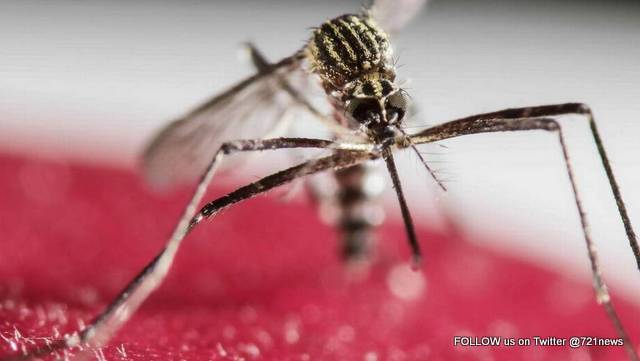GREAT BAY, Sint Maarten (DCOMM) – The Collective Preventive Services (CPS), a government department under the Ministry of Public Health, Social Development and Labour, says there is nothing worse than an unwanted house guest, especially when they do nothing but suck you dry.
Mosquitoes have nasty habits of buzzing around; causing itchy bite marks and making many grab the nearest can of bug repellant.
This year Caribbean Mosquito Awareness Week will be observed from May 8 to May 12 under the theme, “Small Bite, Big Threat.” The Region has become increasingly susceptible to mosquito borne diseases, which threaten the health of the people of the Caribbean, according to the Caribbean Public Health Agency.
CPS in line with the aforementioned and will be providing information via radio and TV programs and the print-media about the elimination of mosquito breeding sites.
Enjoy the outdoors and stop the spread of mosquito-borne illnesses by following tips from CPS to prevent mosquito infestation and control an existing problem.
“Over the last few years, Sint Maarten has had increased cases of mosquito-borne illnesses such as zika virus, dengue fever and chikungunya,” said CPS Environmental Health Officer Gerald Davelaar.
“To ensure the safety of family, friends and pets, it’s extremely important to make sure you’re taking the proper steps: 1st reducing mosquito breeding through water management and source reduction, and 2nd reducing adult mosquito populations.”
One of the easiest and most crucial things to do is to remove any stagnant water you have around your property. Empty pots, tarps, tools and trash cans of any water that has collected after rainfall, because they are all breeding grounds for mosquitoes.
If a mosquito problem already exists, CPS recommends controlling adult mosquitoes through mosquito traps, area spray control and vegetation management.
Mosquitoes can also be kept out of the home by keeping windows, doors and porches tightly screened.
“Eliminating standing water is probably the most important thing to remember when preventing or controlling mosquito problems. Keep it in the back of your mind during all outdoor activities – even remember to irrigate lawns and gardens carefully to prevent water from standing for several days,” added Davelaar.
CPS reminds the public to practice the THREE D’s of mosquito prevention — Drain, Dress and Defend:
• Drain: Empty out water containers at least once per week
• Dress: Wear long sleeves, long pants, and light-colored, loose-fitting clothing
• Defend: Properly apply an approved repellent such as DEET, picaridin, IR3535
Mosquito-borne diseases such as zika, dengue fever and chikungunya are transmitted by the female vector Aedes Aegypti mosquito.
The Aedes Aegypti mosquito is distinguished by its markings. The body of the mosquito has alternate black and white horizontal stripes. The Aedes Aegypti mosquito lays her eggs in clear (clean) stagnant water. Within eight days the mosquito can complete its life cycle from egg, to larvae to pupae and to and adult mosquito.
An increase in the mosquito population puts residents at risk. For information about mosquito-borne diseases prevention measures, you can call CPS at 542-2078 or 542-3003.






























